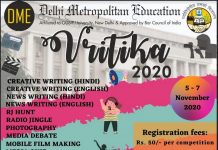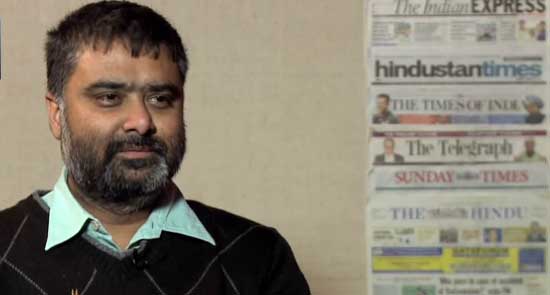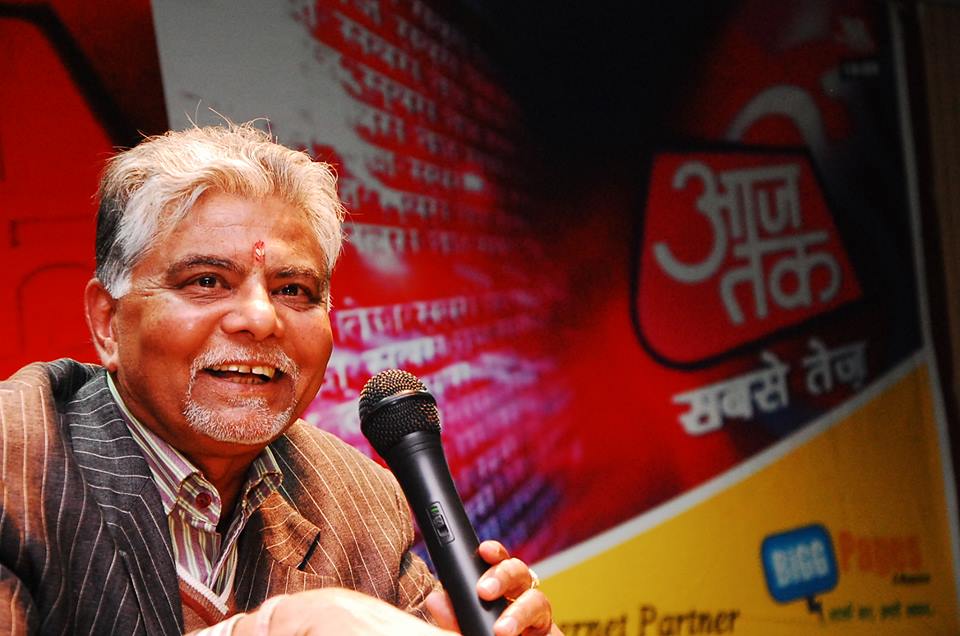New Delhi, 21 January 2013: This year the Nobel Peace Prize laureate, His Holiness the 14th Dalai Lama, will honour the DSC Jaipur Literature Festival 2013 with his presence. “Literature has played a major role in my life,” the spiritual leader said. “Since childhood, reading has been of great importance to me and I am often reminded of the immense kindness of the scholars of the past who translated a vast array of Buddhist literature into Tibetan. I look forward to attending the Jaipur Literature Festival and meeting people writing and reading today.” The Festival is scheduled to take place from 24th to 28th January 2013 at Diggi Palace, Jaipur. The Dalai Lama’s visit would be a prelude to discussions and readings on the theme ‘The Buddha in Literature’. Festival Co-Director Namita Gokhale said, “Gautama the Buddha’s impact on humanity lies beyond religion and theology. The entire fabric of Asian society – from Central Asia and Afghanistan to China and Japan – has been deeply influenced by the philosophy of Buddhism. Today Buddhism is a way of life for many people around the world. The internal journey of awakening and personal evolution is mirrored in the literature, art and cultural practice of Buddhism. Our sessions on ‘The Buddha in Literature’ are a tribute to the way of seeing and knowing taught by the Buddha.”
The session ‘If You Meet the Buddha on the Road’ will include discussions between Victor Chan, Karma Ura, Siddiq Wahid, Ranjini Obeyesekere and Nayanjot Lahiri on their experiences with Buddhism and their explorations of the many paths of the Buddha’s dharma. “The panel will speak simultaneously as scholars from a spectrum of cultures that make up the 2,500 year-long history of Buddhism, and as practitioners whose lives have been shaped by its doctrine and worldview. To explore Buddhism through their lives and work will help comprehend the many elements that mark the encounter between Buddhism and modernity,” said Nayanjot Lahiri.
In the session ‘Women on the Path’, Ranjini Obeyesekere from Sri Lanka, Kunzang Choden from Bhutan, Ani Choying from Nepal and Indian writer Swati Chopra will discuss the place of women within Buddhist theology and the issues they face on the spiritual path.
In ‘The Aesthetics of Impermanence’, cultural historian Benoy Behl will examine the ethical and artistic underpinnings of the Buddhist creative legacy. Ajay Navaria and Kancha Ilaiah will share Dalit perspectives on alternative paths to social justice in the session, ‘God as a Political Philosopher: Dalit Perspectives on Buddhism’.
‘Jataka Readings’, a session with Hindi writer Gagan Gill, Ranjini Obeyesekere and R. Sivapriya, will have readings from poetry and prose, and from the massive collection of Buddhist folklore about the previous incarnations of the Buddha in human and animal form. About her engagement with Buddhism, Ranjini Obeyesekere said, “The Dhamma as the Buddha taught it is not a dogma but a means to an end, which is happiness and peace of mind. Each individual can come to his/her own understanding of it. My own understanding has come from my reading of Buddhist literature. As a translator, I began to read it closely and had an insight into the complexity of the teachings put in such simple terms.’
‘The Buddha in Literature’ will have author and critic Chandrahas Choudhury, Nadeem Aslam and Kunzang Choden presenting an impressionistic medley of writings interpreting the Buddha in literature.
Victor Chan, co-author of The Wisdom of Compassion with the Dalai Lama, will share insights on meditative practice and the importance of humour, optimism and forgiveness in the session, ‘Journeys of the Mind’. “The Dalai Lama is well-known as a champion of compassion and has stated that his religion is kindness. I look forward to talking about the practical life-lessons I learned from observing him, both in public and in private,” he said. In the same session, Kunzang Choden, internationally renowned Bhutanese writer, will read from her books that bring alive the sights and sounds of her mountainous homeland.
Festival Co-Director William Dalrymple said, “I am thrilled by the extraordinary programme on the Buddha and literature put together by my colleague, Namita Gokhale. At Jaipur we have a long tradition of studying the confluence of the two great streams of Indian literature and spirituality. Up to now, we have concentrated on the Sufi and Bhakti traditions; now we have the pleasure of wandering through the rich pastures of Buddhist literature. The presence of the Dalai Lama is a particular honour for the festival and a delight for me personally.”
The mornings at Diggi Palace will witness Buddhist devotional songs by Chukie Tethong and Tenzin Norbu, chants by the Drepung Loseling monks and hymns by Ani Choying.
The festival is open to all and online registrations can be done at the website, jaipurliteraturefestival.org.
About The DSC Jaipur Literature Festival
The DSC Jaipur Literature Festival is considered to be Asia’s leading literature event, celebrating national and international writers, and encompassing a range of activities including film, music and theatre. The festival has already hosted some of the best-known national and international writers including Orhan Pamuk, J.M. Coetzee, John Berendt, Kiran Desai, Christopher Hampton, Ian McEwan, Vikram Seth, Wole Soyinka, Salman Rushdie, Pico Iyer, Simon Schama, Thomas Keneally, Hanif Kureishi, Vikram Chandra, Anoushka Shankar, Michael Frayn, Stephen Frears, Alexander McCall Smith, Donna Tartt, Tina Brown, Shashi Tharoor, Mohammed Hanif, Paul Zacharia, among many others. The Directors of the DSC Jaipur Literature Festivals are William Dalrymple and Namita Gokhale and the festival is produced by Sanjoy K. Roy and Sheuli Sethi of Teamwork Productions. DSC Limited is the principal sponsor of the DSC Jaipur Literature Festival.










